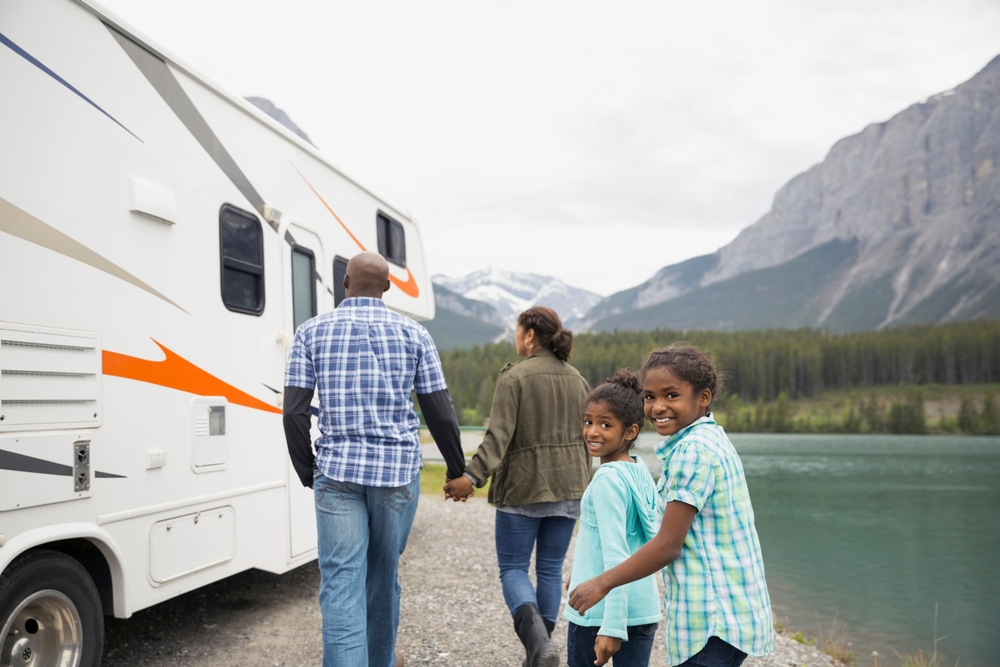
Are you ready to embark on the adventure of a lifetime, traversing the scenic highways and byways of America in your home on wheels? As a full-time RV traveler, you’re not just planning a vacation – you’re embracing a lifestyle that promises freedom, flexibility, and unforgettable experiences. But before you hit the road, there’s one crucial aspect you can’t afford to overlook: RV insurance tailored specifically for full-time travelers.
In this comprehensive guide, we’ll explore the ins and outs of RV insurance (RV Insurance for Full-Time Travelers) for those who call the open road their home. From understanding unique coverage needs to comparing top providers, we’ve got you covered. So buckle up, and let’s navigate the world of full-time RV insurance together!
Why Full-Time RV Insurance Matters
Traditional RV insurance policies are designed for occasional travelers or weekend warriors. But when your RV becomes your primary residence, your insurance needs change dramatically. Full-time RV insurance combines elements of both auto and homeowners insurance, providing comprehensive coverage for your unique lifestyle.
According to a recent survey by the RV Industry Association, the number of full-time RV travelers has been steadily increasing over the past decade. This growing trend has prompted insurance companies to develop specialized policies that address the specific risks and challenges faced by full-time RVers.
Key Coverage Areas for Full-Time RV Travelers
- Personal Liability Protection: This covers you if someone is injured in or around your RV, or if you accidentally damage someone else’s property.
- Personal Property Coverage: Protects your belongings inside the RV, which is crucial since your RV is now your home.
- Full Replacement Cost: If your RV is totaled, this ensures you receive enough to replace it with a new, similar model.
- Emergency Expense Coverage: Provides funds for temporary lodging and transportation if your RV becomes uninhabitable due to a covered loss.
- Roadside Assistance: Offers 24/7 help for breakdowns, towing, and other emergencies.
Comparing Top RV Insurance Providers for Full-Time Travelers
To help you make an informed decision, we’ve compiled a comparison table of some of the leading RV insurance providers that offer specialized policies for full-time travelers:
Provider | Specialized Full-Time Coverage | Personal Property Limit | Roadside Assistance | Full-Timer Liability | Customer Satisfaction Rating |
|---|---|---|---|---|---|
Good Sam | Yes | Up to $100,000 | Included | Yes | 4.5/5 |
Progressive | Yes | Customizable | Optional | Yes | 4.3/5 |
National General | Yes | Up to $50,000 | Included | Yes | 4.2/5 |
Foremost | Yes | Customizable | Optional | Yes | 4.1/5 |
RV America | Yes | Up to $75,000 | Included | Yes | 4.4/5 |
Note: Customer satisfaction ratings are based on aggregated online reviews and may vary. Always research current offerings and read policy details carefully before making a decision.
Factors Affecting Your RV Insurance Premiums
Several factors can influence the cost of your full-time RV insurance:
- RV Type and Value: Luxury Class A motorhomes typically cost more to insure than smaller travel trailers.
- Driving Record: A clean driving history can lead to lower premiums.
- Coverage Limits: Higher limits offer more protection but increase your premium.
- Deductible: Opting for a higher deductible can lower your monthly payments.
- Location: Where you plan to travel and park your RV can affect your rates.
- Age and Condition of the RV: Newer RVs may be more expensive to insure, but older ones might require additional coverage.
Tips for Saving on Full-Time RV Insurance
- Bundle Policies: Many insurers offer discounts if you bundle your RV insurance with other policies, such as auto insurance for a towed vehicle.
- Take RV Safety Courses: Completing approved safety courses can lead to premium discounts.
- Install Safety Features: Anti-theft devices, fire suppression systems, and other safety features can lower your rates.
- Pay Annually: Some companies offer discounts for paying your premium in full rather than monthly.
- Maintain a Good Credit Score: In many states, a higher credit score can result in lower insurance rates.
Real-Life Experiences: What Full-Time RVers Say
To get a better understanding of how full-time RV insurance works in practice, I reached out to several experienced RVers on popular forums like RV.net and iRV2.com.
Sarah and Tom, a retired couple who have been full-timing for five years, shared their experience:
“We initially underestimated the importance of specialized full-time RV insurance. After a minor accident in our first year, we realized our policy didn’t cover all our needs. We switched to a full-timer policy with Good Sam, and the peace of mind has been worth every penny. Their roadside assistance has saved us more than once!”
Another full-timer, Mike, who runs a popular RV travel blog, offered this advice:
“Don’t skimp on personal property coverage. Remember, everything you own is in that RV. I learned the hard way when my laptop and camera were stolen during a break-in. Now, I make sure my policy covers all my gear, including my work equipment.”
These real-world insights underscore the importance of tailoring your insurance to your specific lifestyle and needs.
Making the Right Choice for Your RV Lifestyle
Choosing the right insurance policy for your full-time RV adventure is a crucial step in ensuring a smooth and worry-free journey. Here are some final recommendations to help you make an informed decision:
- Assess Your Needs: Take inventory of your belongings and consider your travel plans to determine the coverage limits you’ll need.
- Compare Multiple Quotes: Don’t settle for the first quote you receive. Shop around and compare offerings from different providers.
- Read the Fine Print: Carefully review policy details, exclusions, and limitations before committing.
- Consult with Specialists: Consider speaking with insurance agents who specialize in RV coverage for full-timers. They can provide valuable insights tailored to your situation.
- Review Annually: As your needs change, so should your coverage. Review your policy each year to ensure it still meets your requirements.
Remember, the cheapest option isn’t always the best. Focus on finding a policy that provides comprehensive coverage for your unique lifestyle, even if it means paying a bit more in premiums.
Embracing the Full-Time RV Lifestyle with Confidence
As you prepare to embark on your full-time RV adventure, having the right insurance coverage can provide the peace of mind you need to fully embrace the freedom of the open road. With proper protection in place, you can focus on creating unforgettable memories and exploring all that this amazing country has to offer.
Whether you’re planning to chase the sun along coastal highways, immerse yourself in the tranquility of national parks, or discover hidden gems in small-town America, your RV is more than just a vehicle – it’s your home, your sanctuary, and your ticket to adventure. Protect it well, and it will serve you faithfully on your journey of a lifetime.
Safe travels, and may the road always rise to meet you!
Frequently Asked Questions: RV Insurance for Full-Time Travelers
To wrap up our comprehensive guide, let’s address some of the most common questions full-time RV travelers have about insurance:
1. Can I use my regular auto insurance for full-time RV living?
No, standard auto insurance is not sufficient for full-time RV living. You need a specialized full-time RV policy that combines elements of both auto and homeowners insurance to adequately protect your lifestyle.
2. How much does full-time RV insurance typically cost?
The cost can vary widely depending on factors like your RV’s value, your coverage limits, and your location. On average, full-time RV insurance can range from $1,000 to $4,000 per year. However, it’s best to get personalized quotes from multiple providers to determine your specific costs.
3. Is personal liability coverage really necessary for full-time RVers?
Absolutely. Personal liability coverage is crucial for full-time RVers as it protects you if someone is injured in or around your RV, or if you accidentally damage someone else’s property. Without it, you could be personally liable for medical expenses or legal fees.
4. What happens if I need to file a claim while traveling?
Most reputable RV insurance providers offer 24/7 claims services and can assist you no matter where you are in the United States. Many also provide nationwide networks of repair shops and service centers to help you get back on the road quickly.
5. Can I suspend my coverage during times when I’m not traveling?
Some insurance companies offer the option to suspend or reduce coverage during periods when your RV is in storage. However, it’s important to maintain some level of coverage to protect against theft, weather damage, or other potential risks even when you’re not on the road. Always check with your insurance provider about their specific policies regarding coverage suspension.






